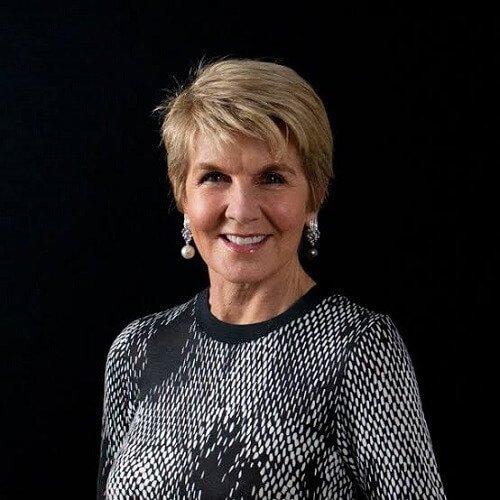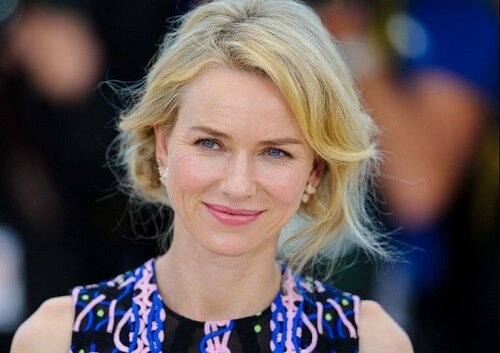In this article, here is the full details of Julie Bishop about wiki, biography, date of birth, birthplace, zodiac sign, nationality, hometown, age, height, weight, father, mother, family, boyfriend, husband, relationship status, children, profession, education, career, net worth, facts, Wikipedia, and many more.

Early Life and Education
Julie Isabel Bishop was born on July 17, 1956, in Lobethal, South Australia. She was the third of four children in a close-knit family. Her parents, Isabel Mary and Douglas Alan Bishop, owned an apple orchard in the Adelaide Hills. Growing up in rural Australia, Bishop learned the values of hard work, resilience, and community spirit—qualities that would later define her political career.
Bishop attended St. Peter’s Collegiate Girls’ School, where she excelled academically and showed a flair for leadership. Her interest in law and public service was sparked during her school years. In 1978, she graduated from the University of Adelaide with a Bachelor of Laws degree. After completing her legal education, Bishop moved to Perth, Western Australia, to start her career as a solicitor.
Early Career in Law
Julie Bishop began her legal career at the firm Robinson Cox (now Clayton Utz), where she specialized in commercial litigation. Her sharp intellect, dedication, and strong work ethic quickly earned her recognition. She became a partner at the firm in 1985, making her one of the youngest women in Australia to achieve this distinction at the time.
In 1994, Bishop was appointed as managing partner of Clayton Utz’s Perth office. During her tenure, she gained a reputation for her ability to manage complex legal cases and for her leadership in a male-dominated industry. Her success in law paved the way for her entry into politics, as she sought to use her skills to make a broader impact on society.
Entry into Politics
Julie Bishop’s political career began in 1998 when she was elected as the Member of Parliament for Curtin, a federal seat in Western Australia. Representing the Liberal Party, Bishop quickly established herself as a rising star within the party. Her background in law, combined with her articulate communication skills and pragmatic approach to problem-solving, helped her gain the trust of her colleagues and constituents.
Ministerial Roles
Over her two-decade-long political career, Julie Bishop held several significant ministerial roles, making substantial contributions to Australian politics and international relations.
Minister for Ageing (2003–2006): Bishop’s first ministerial appointment was as the Minister for Ageing under Prime Minister John Howard. In this role, she focused on improving aged care services, increasing funding for nursing homes, and ensuring the well-being of Australia’s elderly population. Her performance in this portfolio showcased her ability to handle complex and sensitive issues with compassion and efficiency.
Minister for Education, Science, and Training (2006–2007): In 2006, Bishop was appointed as the Minister for Education, Science, and Training. She advocated for educational reform, emphasizing the importance of literacy and numeracy in primary education. She also pushed for greater investment in science and research, believing that innovation was key to Australia’s future economic success. Despite facing criticism for some of her policies, Bishop remained committed to her vision of an equitable and high-quality education system.
Foreign Affairs and International Relations
Julie Bishop is perhaps best known for her tenure as Australia’s Minister for Foreign Affairs, a position she held from 2013 to 2018 under Prime Ministers Tony Abbott and Malcolm Turnbull. She was the first woman to hold this role, breaking new ground in Australian politics.
Global Diplomacy: As Foreign Minister, Bishop played a pivotal role in shaping Australia’s foreign policy during a period of significant global change. She was an advocate for multilateralism, free trade, and the rules-based international order. Her diplomatic style was marked by pragmatism, determination, and a deep understanding of geopolitics.
Key Achievements:
- MH17 Tragedy: One of Bishop’s most notable achievements was her leadership in the aftermath of Malaysia Airlines Flight MH17 being shot down over Ukraine in 2014. She worked tirelessly to secure a United Nations resolution that demanded a full investigation and ensured justice for the victims, including 38 Australians.
- Pacific Engagement: Bishop prioritized strengthening Australia’s relationships with Pacific Island nations, addressing issues such as climate change, economic development, and regional security.
- Asia-Pacific Relations: She fostered closer ties with countries in the Asia-Pacific region, particularly China, Japan, and Indonesia, emphasizing the importance of trade and security partnerships.
Women in Leadership: Throughout her career, Julie Bishop championed the cause of women’s empowerment. She often spoke about the challenges faced by women in politics and business and encouraged young women to pursue leadership roles. Her own journey—from a small-town girl to Australia’s top diplomat—served as an inspiration to many.
Leadership Aspirations
In 2018, following a leadership spill within the Liberal Party, Julie Bishop contested the party’s leadership. Despite her popularity and widespread public support, she was unsuccessful in her bid, with Scott Morrison ultimately becoming Prime Minister. Shortly after, Bishop announced her resignation as Foreign Minister and, in 2019, retired from politics altogether.
Post-Political Career
Since leaving politics, Julie Bishop has remained an influential figure in Australian public life. She has taken on various roles, including:
- Chancellor of the Australian National University (ANU): In 2020, Bishop was appointed Chancellor of ANU, where she continues to contribute to higher education and research.
- Corporate and Non-Profit Roles: Bishop has joined several corporate boards and non-profit organizations, leveraging her experience in governance and diplomacy to make a positive impact.
- Public Speaking and Advocacy: Bishop is a sought-after speaker and commentator, addressing topics such as global politics, leadership, and women’s empowerment.
Personal Life
Julie Bishop has always maintained a relatively private personal life. Known for her impeccable fashion sense and polished demeanor, she has been a prominent figure on the social scene. Despite her demanding career, Bishop has emphasized the importance of work-life balance and has often spoken about the need for self-care.
Legacy
Julie Bishop’s legacy is one of resilience, determination, and excellence. She broke barriers as a woman in both law and politics, becoming a trailblazer for future generations. Her contributions to Australian diplomacy, particularly during challenging times, have cemented her reputation as one of the country’s most respected leaders.
Conclusion
From her early days in rural South Australia to the global stage as Australia’s Foreign Minister, Julie Bishop’s journey is a testament to the power of ambition and hard work. Her story continues to inspire countless individuals, proving that with determination and integrity, it is possible to achieve greatness.
Stay connected with the wikimavani to know more about other trending personalities the wiki, biography, date of birth, birthplace, zodiac sign, nationality, hometown, age, height, weight, father, mother, family, boyfriend, husband, girlfriend, wife, relationship status, children, profession, education, career, net worth, facts, Wikipedia, and many more.












